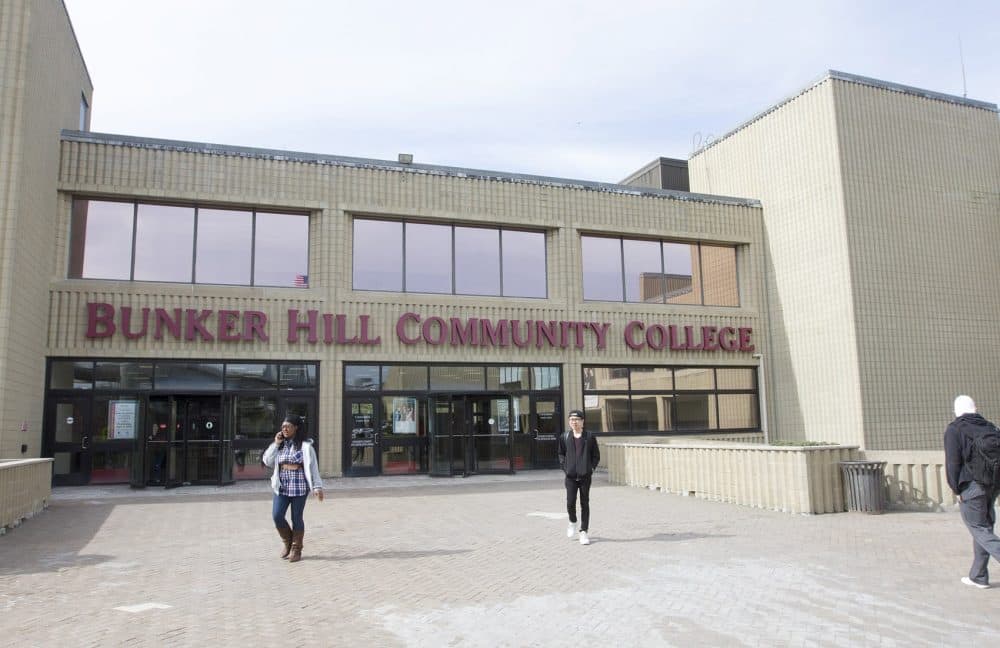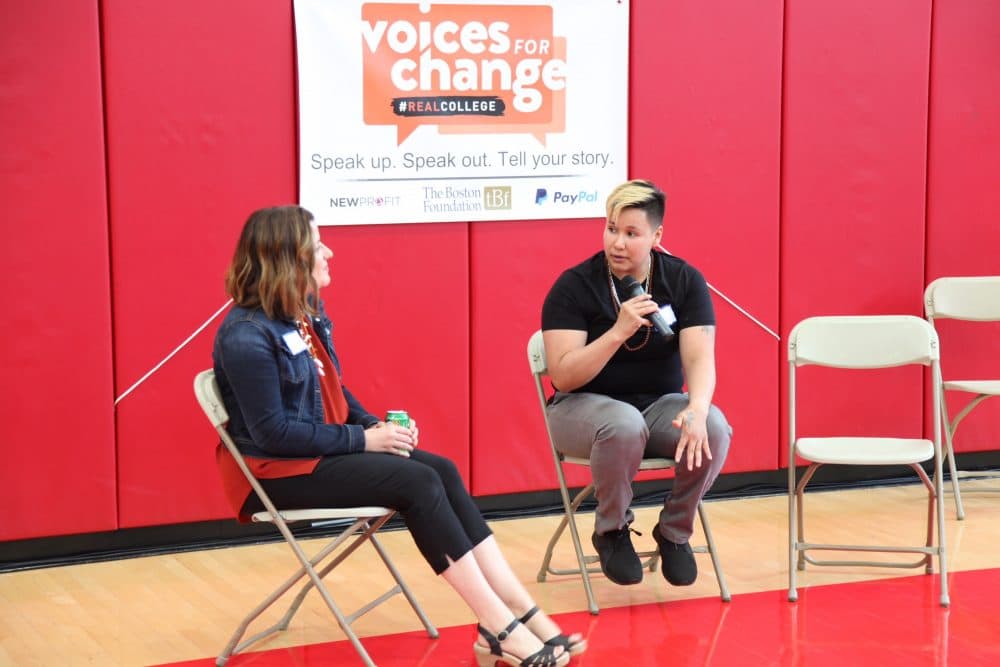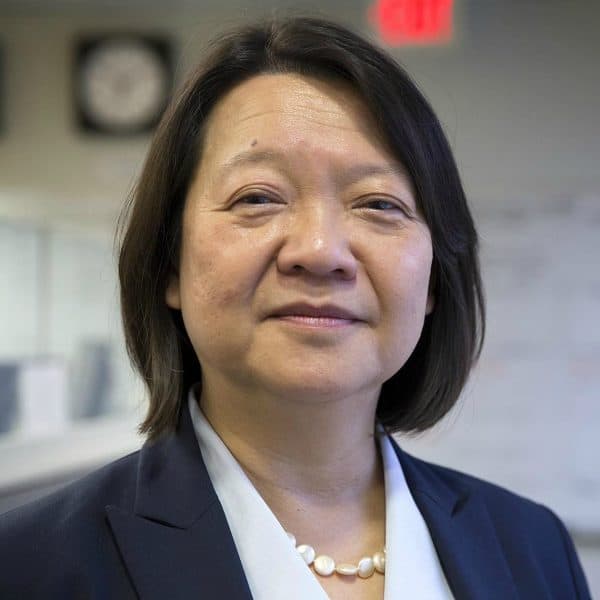Advertisement
1 In 10 College Students In Mass. Are Homeless. More Are Hungry. It's Past Time We Recognize Their Reality

One morning, about a year ago, a Bunker Hill Community College employee found a young woman making a sign on a piece of brown cardboard. She’d written “I NEED — SOME MONEY. A SANDWICH*.” At the bottom of the sign the asterisk was clarified, “*a graphing calculator.”
The student had an overstuffed backpack and a couple of bulging plastic bags. The employee asked the student if she had anywhere to sleep that night. She didn’t. He took her to Single Stop, BHCC’s branch of a national program that connects students to state and federal financial resources and local community services. Single Stop offered her food and a graphing calculator. Eventually, the student finished her degree, and found work in a science lab at Harvard, alongside Ph.D. students and post-docs. At last, she has an apartment of her own.
It’s easy to feel good about that story, and to hope that such charitable impulses can save students one by one. Indeed, that’s where efforts at BHCC started. But we now know that the sheer magnitude of college students who are struggling with hunger and homelessness means we have to do much more.
In a new study, the first of its kind in Massachusetts, the Wisconsin HOPE Lab reveals that across the commonwealth, more than one-third of university students and more than two-fifths of community college students are food-insecure. More than 1 in 10 are also homeless.

Thousands of undergraduates, some low-income and others from middle-class families struggling with too-high college prices, are going without the food and shelter they need to focus on school. Students have long known this, but the crisis has been invisible to many.
BHCC students recently shared their stories as part of #Voices4Change, a social media campaign that is aiming to give voice to these harsh realities. The campaign’s goal is to bring greater attention to solving immediate problems, like hunger and homelessness. Too often, when considering the challenges of college students, the public only thinks about college admissions process or the travails of getting into Harvard.
This month, more than 200 representatives of higher education in Massachusetts, including 40 students and Carlos Santiago, the state commissioner of higher education, gathered at the second Voices of Hunger summit in Worcester. Their goal is to continue to create services and policies that recognize that poverty — food and housing insecurity and even homelessness — prevent thousands of Massachusetts students from completing either a two-year or a four-year college degree.
At BHCC, about half of the students are food and/or housing insecure and 13 percent are homeless.
Our federal government has long had in place programs that recognize K-12 students need lunch (and often breakfast) to do their best in school. (The National School Lunch Program was first established in 1946.) But these same students who go on to college lose the federal free and reduced-price lunch. As a result, students are skipping meals and coming to class hungry. Many do not know where they will sleep that night. This stress over food and housing diminishes the energy the students need to study, and according to the new study, negatively affects their grades. At BHCC, about half of the students are food and/or housing insecure and 13 percent are homeless.
BHCC is learning how to best support these students. Kathleen O’Neill, director of Single Stop, is educating faculty and staff how to recognize the challenges affecting their students, who may feel ashamed or embarrassed. She’s found that it’s easy for a student to evade the question, “Are you hungry?” Instead, O’Neill asks, “Have you had anything to eat today?”
BHCC also has food available for students every day. And once a month, the Greater Boston Food Bank delivers 5,000 pounds of groceries under an overhang outside the gym -- in rain, shine, sleet or snow. (The food arrives on pallets that are too big to bring into the building.) The food is gone in an hour — not a day. Usually, about 100 students are lined up waiting when it arrives, and more arrive within the hour.
With a grant from the FAST fund, a charity that offers students short-term aid, BHCC bought $5,000 worth of Clif Bars for faculty to distribute in class. One student told her math professor that the gesture made the student realize that the professor really did care about the students. In an effort to provide more support, meal vouchers are now being distributed so more students can afford to eat in the cafeteria. An evaluation is underway to examine the impact of these efforts on students’ academic performance.
Food and housing are basic human needs. No college should need to become a social services agency in order to help provide them. For BHCC and other institutions offering their students assistance, it is simply a matter of retention and graduation. Fundamentally it’s about helping people get good jobs and establish stable lives.
It’s time to pursue broader systemic reforms so that no hard-working college student has to make another sad sign.

